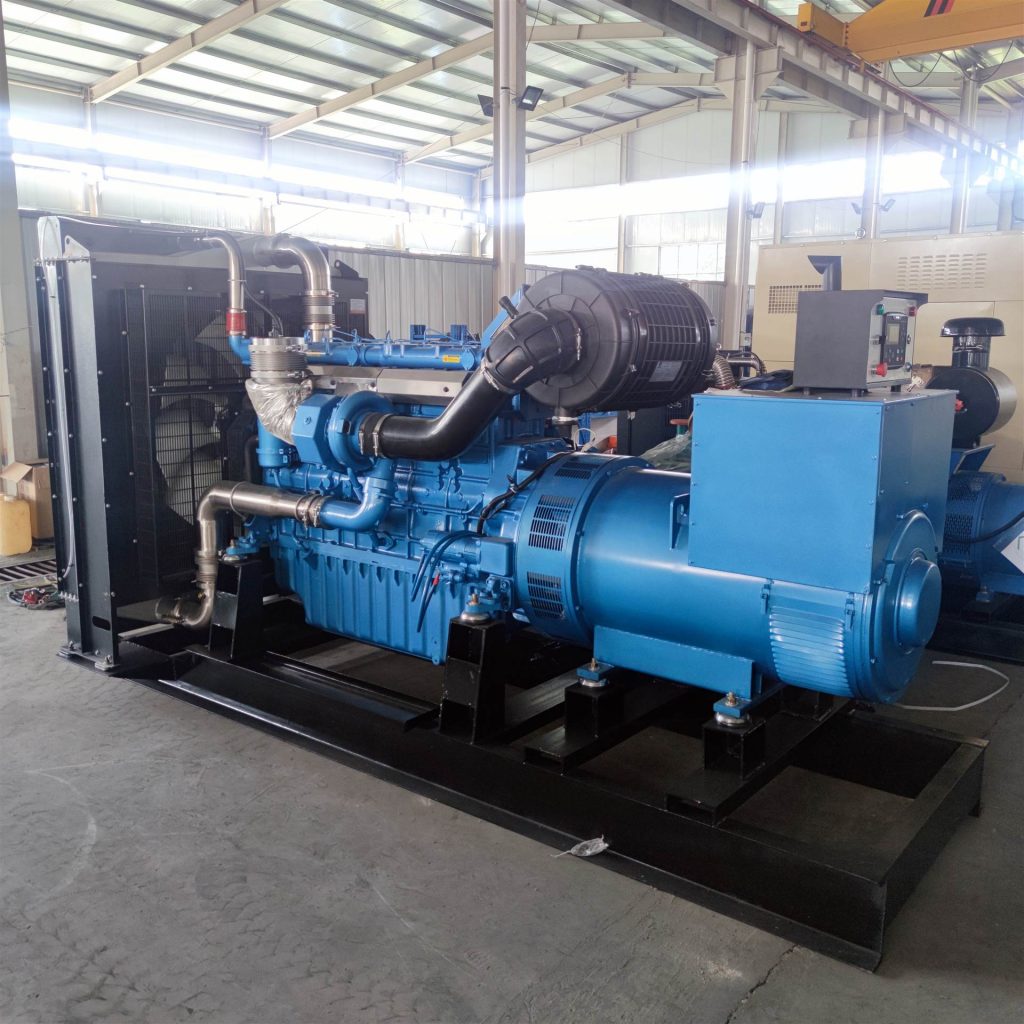Introduction
Diesel generators play a crucial role in providing backup power supply in various settings, including industrial facilities, commercial buildings, and residential areas. In humid climates, where high moisture levels can pose challenges to the operation and longevity of power generation equipment, it is essential to understand the specific considerations and maintenance practices that can help optimize the performance of diesel generators. https://www.lkpowerplant.com/400kw/ explores the impact of humid conditions on diesel generators, key factors to consider when choosing a generator for humid climates, and best practices for maintenance and operation.
Impact of Humid Conditions on Diesel Generators
Humid climates present unique challenges to diesel generators due to the increased moisture levels in the air. High humidity can lead to several issues that affect the performance and reliability of diesel generators, including:

1. Corrosion: The presence of moisture in the air can accelerate the corrosion of metal components in the generator, such as the engine block, fuel lines, and electrical connections. Corrosion can weaken the structural integrity of the generator and lead to malfunctions and breakdowns.
2. Air intake issues: High humidity can affect the efficiency of the air intake system in diesel generators, leading to reduced airflow and decreased engine performance. In extreme cases, excessive moisture in the air can cause water ingestion into the engine, resulting in serious damage.
3. Fuel quality degradation: Humid conditions can cause fuel stored in tanks to absorb water vapor, leading to fuel quality degradation. Water-contaminated fuel can clog filters, injectors, and fuel lines, causing fuel delivery issues and affecting the overall performance of the generator.
4. Cooling system inefficiency: High humidity can impact the cooling system of diesel generators by reducing the effectiveness of heat dissipation. Inadequate cooling can lead to overheating of the engine and other components, increasing the risk of mechanical failures.
Factors to Consider When Choosing a Diesel Generator for Humid Climates
When selecting a diesel generator for use in humid climates, several factors should be taken into account to ensure optimal performance and reliability. These factors include:
1. Enclosure design: Choose a generator with an enclosure that provides adequate protection against moisture and corrosion. Look for features such as weatherproof seals, corrosion-resistant coatings, and proper ventilation to prevent the buildup of condensation inside the enclosure.
2. Material quality: Opt for generators constructed from high-quality materials that are resistant to corrosion and rust. Stainless steel and aluminum components are preferable for humid environments due to their durability and resistance to moisture-related damage.
3. Air filtration system: Select a generator with an efficient air filtration system that can prevent the ingress of moisture and contaminants into the engine intake. Regular maintenance of the air filters is essential to ensure optimal performance in humid conditions.
4. Fuel management system: Choose a generator with a reliable fuel management system that can monitor fuel quality and prevent water contamination. Installing water separators and fuel additives can help maintain the integrity of the fuel supply in humid climates.
5. Cooling system efficiency: Ensure that the generator is equipped with a robust cooling system that can effectively dissipate heat and maintain optimal operating temperatures. Regular inspection and maintenance of the cooling system components are essential to prevent overheating issues.
6. Electrical system protection: Invest in a generator with robust electrical system protection features, such as surge suppressors and voltage regulators, to safeguard against electrical malfunctions caused by moisture and humidity. Proper grounding and insulation of electrical connections are also critical in humid environments.
Best Practices for Maintenance and Operation of Diesel Generators in Humid Climates
To ensure the optimal performance and longevity of diesel generators in humid climates, it is essential to adhere to best practices for maintenance and operation. The following tips can help mitigate the impact of high humidity on generator performance:
1. Regular maintenance: Implement a comprehensive maintenance schedule that includes periodic inspection, cleaning, and servicing of all generator components. Pay special attention to areas prone to corrosion and moisture damage, such as electrical connections, fuel tanks, and cooling system components.
2. Air intake protection: Install air intake filters and moisture traps to prevent the ingress of water vapor and contaminants into the engine. Regularly inspect and replace air filters to maintain proper airflow and prevent engine damage caused by water ingestion.
3. Fuel quality monitoring: Implement a fuel quality monitoring program to ensure that the fuel supply remains free from water contamination and degradation. Use fuel additives and biocides to prevent microbial growth and maintain fuel stability in humid conditions.
4. Enclosure maintenance: Inspect the generator enclosure regularly for signs of corrosion, rust, or water leakage. Repair any damage promptly and ensure that the enclosure is properly sealed to prevent moisture ingress.
5. Cooling system checks: Monitor the cooling system performance regularly and check for signs of overheating or coolant leaks. Clean the radiator and cooling fins to maintain efficient heat dissipation and prevent engine damage.
6. Electrical system protection: Inspect electrical connections and components for signs of corrosion or moisture damage. Ensure that all electrical connections are properly insulated and grounded to prevent electrical malfunctions in humid conditions.
7. Load testing: Conduct regular load tests on the generator to ensure that it can handle the required electrical load effectively. Load testing helps identify potential issues with the generator's performance and allows for timely maintenance and repairs.
Conclusion
Diesel generators are essential for ensuring a reliable power supply in humid climates where high moisture levels can impact the performance and longevity of power generation equipment. By understanding the challenges posed by humid conditions and implementing appropriate maintenance practices, operators can optimize the performance and reliability of diesel generators in such environments. Selecting a generator with suitable design features, materials, and protective systems, as well as following best practices for maintenance and operation, can help mitigate the effects of humidity and ensure uninterrupted power supply when it is needed most.
